My birthday surprise… blood cancer
Due to the severity of his condition, Sunny didn't have time to digest the news of his diagnosis. It wasn't until he left hospital that he was able to process his diagnosis and what he went through. Now, he has some advice for you.
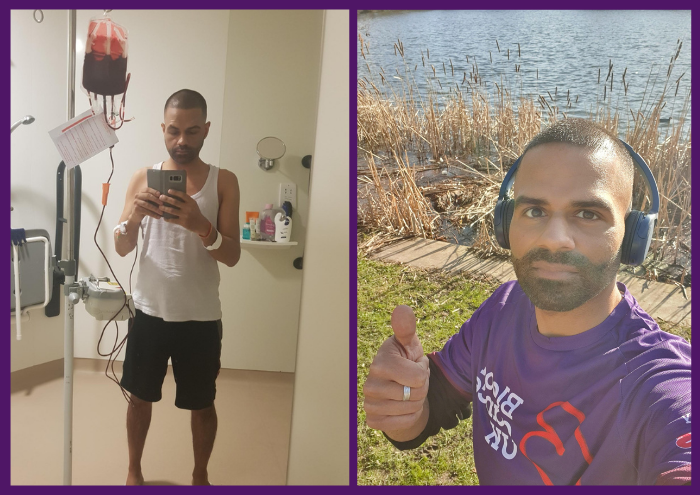
I was diagnosed with stage four non-Hodgkin lymphoma on my 35th birthday. To anyone who may be newly diagnosed or struggling to cope with – and come to terms with – your diagnosis, the best advice I could give you, is to take each day as it comes and always live in the present moment.
In February 2019, I began to notice dark lines on most of my fingernails. At the time, I thought very little of it, and assumed it would go away. By March, I had severe pain throughout my body, extreme fatigue, as well as night sweats. Initially, I thought this was due to being over-worked, but as the pain got worse, I knew something was seriously wrong.
I repeatedly visited my GP, only to be sent home each time with antibiotics or antiviral drugs. I was told it was likely to be an infection and that there was nothing to worry about.
By the beginning of April, my pain had worsened to the point where it would leave me practically paralysed. On a couple of occasions, I was taken to A&E, only to be sent home with the ‘all clear’. Finally, by mid-April, the pain had become unbearable. I was unable to work, eat and sleep. I pleaded with my family to take me to A&E immediately, but once again, I was told to go home.
With my family's persistence, they agreed to admit me for further tests. For the next couple of weeks, I remained undiagnosed in a general ward. My condition deteriorated and the pain had gotten even more severe. I was given every pain suppressant possible, which didn’t help at all.
It wasn't until I was referred to a specialist haematology department that they conducted various scans and tests.
Finally, my bone marrow biopsy results came through on my 35th birthday
The hospital staff did not have the heart to tell me on my birthday, so they told me first thing the following morning. By this point, I was so weak – the cancer had totally consumed my body.
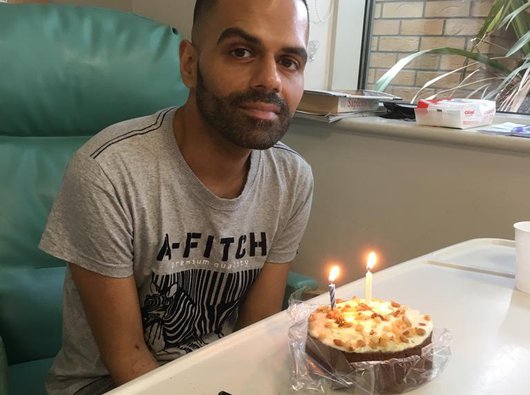
I would urge anyone experiencing symptoms to get a check-up with your GP right away. Ultimately, you know your body better than anyone else. If you feel that something is fundamentally not right, my advice would be to seek a second opinion.
Blood cancer can be hard to identify due to its common and general symptoms. But the sooner it's picked up, the sooner you can begin to get the life-saving treatment you need.
Due to the severity of my condition, I didn't really have time to digest the news of my diagnosis. I was advised that the chemotherapy would likely leave me infertile, but because I was starting treatment in a few hours, I did not have time to consider seeing a fertility doctor or discussing the option of freezing my sperm.
Accepting this was really tough and left me devastated.
The treatment itself was a nightmare
I was given the most intense regime of chemotherapy possible. I lost my hair, eyebrows, and lashes. I no longer recognised the person looking back at me in the mirror.
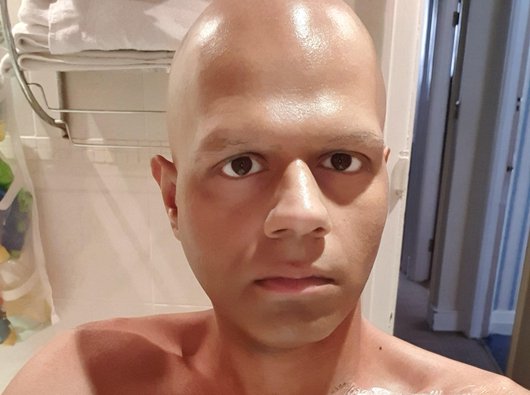
This, coupled with the side effects of treatment, ranging from weight gain, to sickness, nausea, and severe headaches (to name a few), led me to lose all my confidence. I struggled to leave the house without a disguise.
I also became neutropenic, which can be life-threatening. This meant that my life-saving cycles of chemotherapy were frequently delayed so my body could recover.
I went on to require over 10 blood transfusions, which ultimately saved my life.
The regime of medication was daunting too. I typically had to take over 40 different tablets each day.
The hospital staff were my saviours and became my family while I was in hospital. They truly are the unsung heroes.
Little did I know that in just a couple of months, the Covid pandemic would become a sad reality. In one sense, my time in hospital mentally prepared me to deal with lockdown.
However, on the other hand, it added to my anxieties. The isolation made it really difficult to deal with the post-traumatic stress of such a terrible and testing experience.
While you’re in hospital and undergoing harsh treatment, everything is such a whirlwind. It’s only once I returned home that I began to process the severity of the situation and everything that I went through.
Starting to process what I went through
While you’re in hospital and undergoing harsh treatment, everything is such a whirlwind. It’s only once I returned home that I began to process the severity of the situation and everything that I went through.
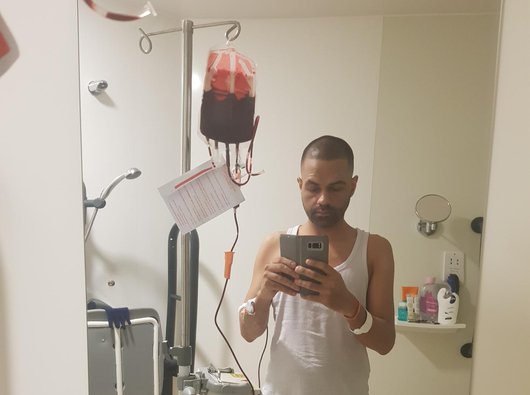
While I was in hospital, l made a promise to myself that if l was fortunate enough to recover and return home, l would strive to make a positive impact on the lives of others.
Since returning home, I’ve volunteered with many charities and within local communities. I’ve also helped to promote blood donation among the South Asian community. More recently, I have taken part in Blood Cancer UK’s fundraising.
I am honoured to say that I have personally delivered over 1,500 meals to vulnerable people since the first day of lockdown in March 2020.
Helping others enabled me to remain positive, as well as to cope with and deal with my post-traumatic stress and emotions. I would strongly encourage others to do this too, in as much or as little as possible. Because the smallest act of kindness can indeed make the biggest difference.
This is blood cancer for me.
We've created a booklet of key information for anyone who's just been diagnosed with blood cancer, Your blood cancer diagnosis: What happens now? Order free copies for yourself, your family and friends.
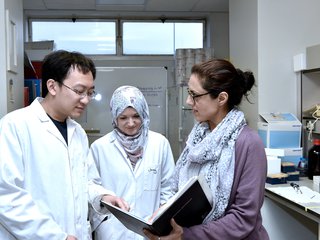
Fund research into kinder treatments
Sunny’s experiences highlight why we need to fund more vital research into developing kinder treatments for people with blood cancer.

